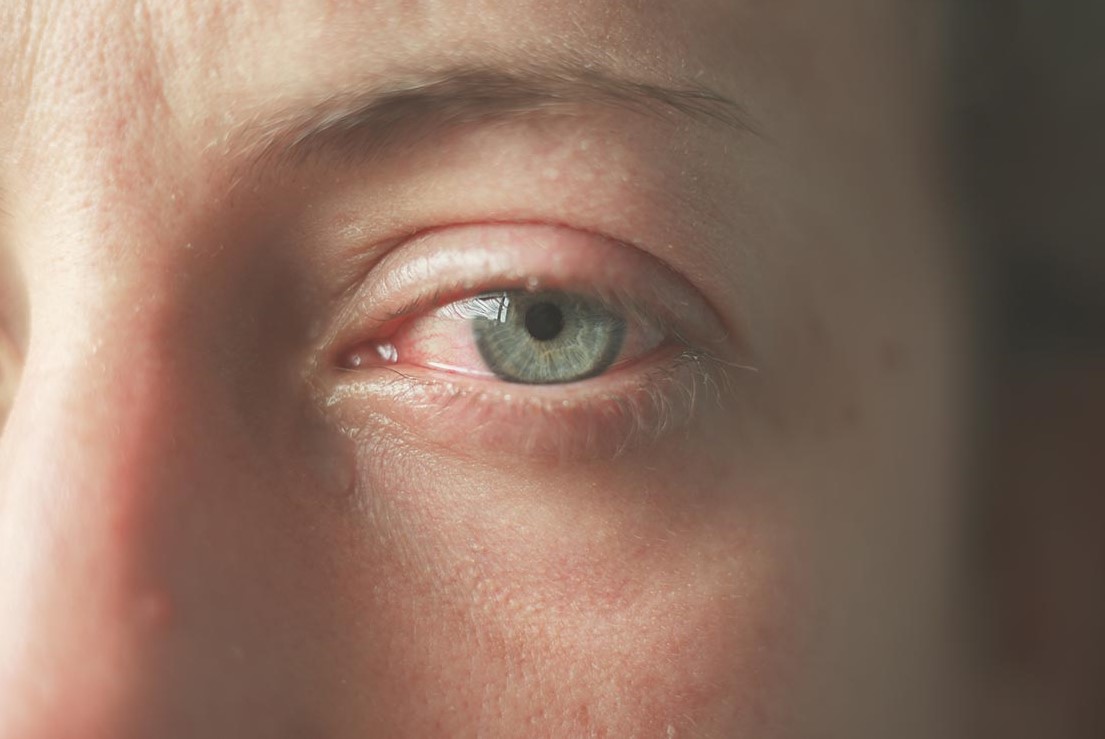
Diseases of the cornea: Keratitis
Keratitis is an inflammation of the cornea that can be caused by a viral infection or by traumatic events. To treat it, the cause must be traced
Keratitis is an inflammatory process of the cornea
It can originate from an infection (bacteria, fungi, viruses or parasites) or also be caused by trauma, exposure to chemical or physical agents, altered trophism and alteration of the tear film.
The cornea is the transparent membrane covering the front surface of the eye
The cornea is responsible for the passage of light inside the eye and, together with the crystalline lens, represents the lens located inside the eye with which it constitutes the so-called ocular diopter, i.e. the eye’s ability to perform the function of a lens altogether (as if it were a pair of glasses).
The severity of keratitis varies and the aetiological diagnosis (i.e. identification of the cause) is essential to define the treatment plan and try to avoid damage that may permanently limit visual capacity.
The most common forms of keratitis in paediatric age include viral keratitis, particularly herpes virus and adenovirus.
Herpes virus keratitis frequently causes corneal ulceration
In developed countries, it is the second leading cause of corneal blindness after trauma.
Adenovirus keratitis tends to spread very easily in highly populated environments, such as schools.
In both cases it can take weeks before recovery, and in either case relapses are frequent.
Acanthamoeba keratitis: this is a ubiquitous protozoan found in soil and water.
Acanthamoeba keratitis is often associated with contact lens wear.
Main risk factors are: prolonged contact lens wear, poor hygiene, use of saliva or tap water for cleaning and poor lens storage.
In contact lens wearers, Acanthamoeba keratitis is usually preceded by even minor trauma and exposure to contaminated water (classic infections contracted in the swimming pool when bathing while wearing contact lenses) or soil.
Diagnosis is not always immediate and treatment is complex and prolonged
Keratitis secondary to tear film deficiency: cases in paediatric age are increasing recently, due to excessive use of tablets or smartphones.
Read Also:
Emergency Live Even More…Live: Download The New Free App Of Your Newspaper For IOS And Android
Corneal Keratoconus, Corneal Cross-Linking UVA Treatment
Myopia: What It Is And How To Treat It
Presbyopia: What Are The Symptoms And How To Correct It
Nearsightedness: What It Myopia And How To Correct It
Blepharoptosis: Getting To Know Eyelid Drooping
Lazy Eye: How To Recognise And Treat Amblyopia?
What Is Presbyopia And When Does It Occur?
Presbyopia: An Age-Related Visual Disorder
Blepharoptosis: Getting To Know Eyelid Drooping
Rare Diseases: Von Hippel-Lindau Syndrome
Rare Diseases: Septo-Optic Dysplasia


